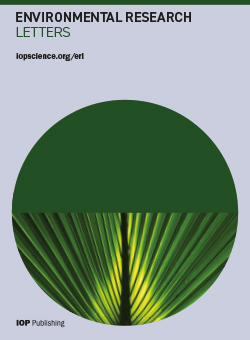Linkages between GRACE water storage, hydrologic extremes, and climate teleconnections in major African aquifers
IF 5.8
2区 环境科学与生态学
Q1 ENVIRONMENTAL SCIENCES
引用次数: 21
Abstract
Water resources management is a critical issue in Africa where many regions are subjected to sequential droughts and floods. The objective of our work was to assess spatiotemporal variability in water storage and related controls (climate, human intervention) in major African aquifers and consider approaches toward more sustainable development. Different approaches were used to track water storage, including GRACE/GRACE Follow On satellites for Total Water Storage (TWS); satellite altimetry for reservoir storage, MODIS satellites for vegetation indices, and limited ground-based monitoring. Results show that declining trends in TWS (60–73 km3 over the 18 yr GRACE record) were restricted to aquifers in northern Africa, controlled primarily by irrigation water use in the Nubian and NW Saharan aquifers. Rising TWS trends were found in aquifers in western Africa (23–49 km3), attributed to increased recharge from land use change and cropland expansion. Interannual variability dominated TWS variability in eastern and southern Africa, controlled primarily by climate extremes. Climate teleconnections, particularly El Nino Southern Oscillation and Indian Ocean Dipole, strongly controlled droughts and floods in eastern and southern Africa. Huge aquifer storage in northern Africa suggests that the recent decadal storage declines should not impact the regional aquifers but may affect local conditions. Increasing groundwater levels in western Africa will need to be managed because of locally rising groundwater flooding. More climate resilient water management can be accomplished in eastern and southern Africa by storing water from wet to dry climate cycles. Accessing the natural water storage provided by aquifers in Africa is the obvious way to manage the variability between droughts and floods.GRACE储水量、水文极端情况和非洲主要含水层气候遥相关之间的联系
水资源管理是非洲的一个关键问题,非洲许多地区连续遭受干旱和洪水。我们的工作目的是评估非洲主要含水层储水和相关控制(气候、人为干预)的时空变异性,并考虑实现更可持续发展的方法。采用了不同的方法来跟踪储水量,包括用于总储水量(TWS)的GRACE/GRACE跟踪卫星;利用卫星测高测量水库储水量,利用MODIS卫星测量植被指数,以及有限的地面监测。结果表明,在18年GRACE记录中,TWS的下降趋势(60-73 km3)仅限于北非含水层,主要受努比亚和西北撒哈拉含水层灌溉用水的控制。西非含水层的TWS呈上升趋势(23-49 km3),原因是土地利用变化和耕地扩张带来的补给增加。在非洲东部和南部,年际变率主导TWS变率,主要受极端气候控制。气候遥相关,特别是厄尔尼诺-南方涛动和印度洋偶极子,强烈地控制了非洲东部和南部的干旱和洪水。北非巨大的含水层储水量表明,最近的年代际储水量下降不应影响区域含水层,但可能影响当地条件。由于当地不断上升的地下水泛滥,西非不断上升的地下水位将需要得到管理。在非洲东部和南部,通过储存从潮湿到干燥的气候循环中的水,可以实现更具气候适应性的水管理。利用非洲含水层提供的天然储水是管理干旱和洪水之间变化的明显方法。
本文章由计算机程序翻译,如有差异,请以英文原文为准。
求助全文
约1分钟内获得全文
求助全文
来源期刊

Environmental Research Letters
环境科学-环境科学
CiteScore
11.90
自引率
4.50%
发文量
763
审稿时长
4.3 months
期刊介绍:
Environmental Research Letters (ERL) is a high-impact, open-access journal intended to be the meeting place of the research and policy communities concerned with environmental change and management.
The journal''s coverage reflects the increasingly interdisciplinary nature of environmental science, recognizing the wide-ranging contributions to the development of methods, tools and evaluation strategies relevant to the field. Submissions from across all components of the Earth system, i.e. land, atmosphere, cryosphere, biosphere and hydrosphere, and exchanges between these components are welcome.
 求助内容:
求助内容: 应助结果提醒方式:
应助结果提醒方式:


